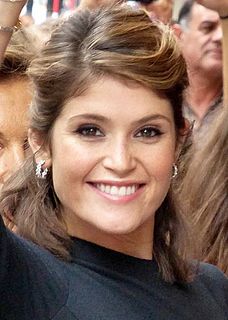A Quote by Peter Straub
I always think about the books I'm doing in pretty much the same way. I'm simply trying to write that particular novel as well as that particular novel can be written. I want to listen to what it is telling me, trying to figure out what it wants to do as much as what I want to do with it. There's a negotiation that's constant and ongoing between me and the material I'm working with, because I'm trying to listen to it.
Related Quotes
We are trying not so much to make God listen to us as to make ourselves listen to him; we are trying not to persuade God to do what we want, but to find out what he wants us to do. It so often happens that in prayer we are really saying, 'Thy will be changed,' when we ought to be saying, 'Thy will be done.' The first object of prayer is not so much to speak to God as to listen to him.
My preference will always be theatre because it's where my heart lies and it's what I started with and eventually I want to direct it. It's where my real interest is. But I just love trying out new stuff. Acting for me isn't just for me about being in front of a camera ... it's so much more than that. It's always about telling a story and there are so many ways of doing that, so I'll always want to try something else.
Before I studied story, I was trying to write a novel, and it was terrible. It wasn't going anywhere, and I couldn't figure out what I was trying to do. It was really hard; much harder than I thought it was going to be. Now that I've studied story, I think I'd have a different approach and maybe I could actually get it done.
Once I came out in college I just have always been out and at work with pretty much everybody. My wife and I both working as journalists, because she's a photographer, and often working together, would have to kind of navigate this weird world. When you're trying to develop sources, when you're trying to you know make personal connections with people, you inevitably want to share things about yourself and that can be really tricky.
I always write a draft version of the novel in which I try to develop, not the story, not the plot, but the possibilities of the plot. I write without thinking much, trying to overcome all kinds of self-criticism, without stopping, without giving any consideration to the style or structure of the novel, only putting down on paper everything that can be used as raw material, very crude material for later development in the story.
It's disingenous for me to say that I wasn't trying to write a moral novel. By its very nature as a novel about the Iraq War, Fobbit steps into the political conversation. There's no way to avoid that. I can appreciate that readers are probably going to line up on one side of the novel or the other. I hope they go to those polar extremes, actually.
The field of the novel is very rich. If you're a composer, you're well aware of the history of composition, and you are trying to make your music part of that history. You're not ahistorical. In the same way, I think, if you write now, you are writing in the historical context of what the novel has been and what possibilities it has revealed.
I think the term "artist's novel" for me has referred to writing which supports an art practice or a more specifically a particular artwork or project. The nonfiction novellas and nonfiction novel I have written play a role in my artwork as objects - which I will return to, but I write the books to exist autonomously.
There's still a part of me that thinks I have to write a really good novel. I'm not trying to say I'm not happy with the novels I've written in the past. But it always feels to me like there's another one that I have to write that will really say what I want to say, and really paint this world that I can see hazily in my head.
The strength of film is its accessibility and immediacy. But the strength of books is that freedom to really depict anything you want because people are going to be reading it in private. So, I'm always trying to write with the immediacy and the constant motion of film but I'm also trying to write with the complete freedom of subject matter that books have.
I think everything you are, everything that engages you, eventually comes to bear on the novel you write. I think the creative energy in novel writing, obviously, comes from tension. From trying to fuse. From trying to make coherent disparate things that might not at all seem to belong together within a narrative.






































